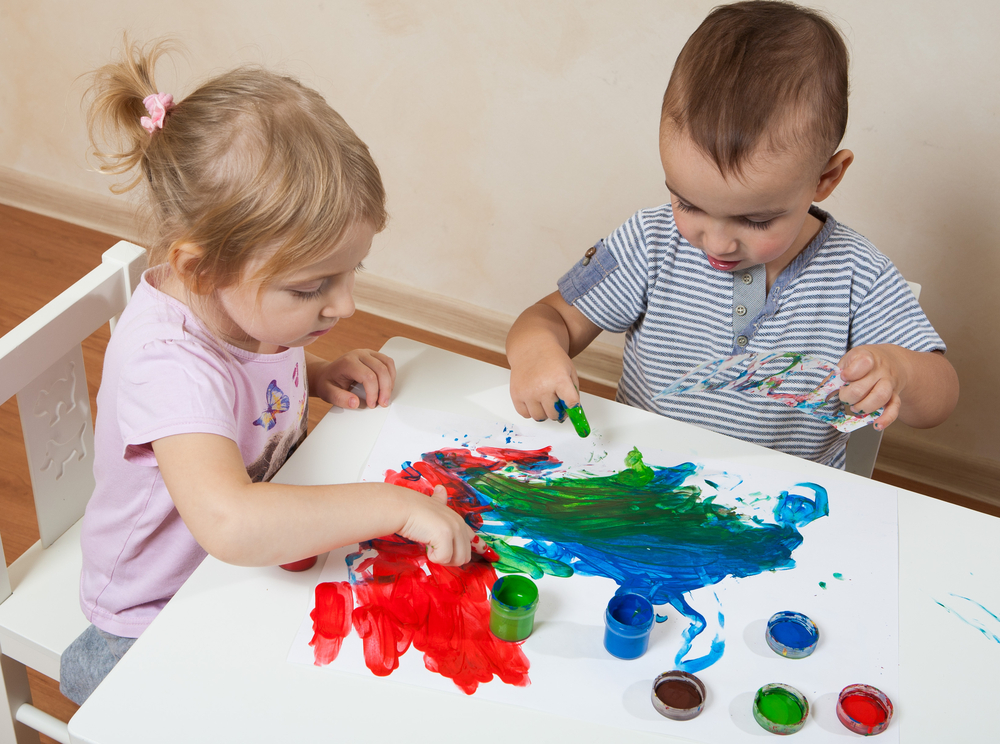Normal Reading Fiction worksheets activities for Ages 5-9
7 filtered results
-
From - To
Discover engaging Normal Reading Fiction worksheets designed for children aged 5-9! Our collection offers a variety of fun activities that enhance reading comprehension and spark creativity in young learners. Targeted for kindergartners through early graders, these interactive worksheets are perfect for both classroom and home learning. Kids will explore fictional stories, answering questions, and completing exercises that promote critical thinking and imagination. Each activity is tailored to foster a love for reading while encouraging the development of essential literacy skills. Join us in making reading a delightful adventure with our captivating and educational resources! Perfect for educators and parents alike!
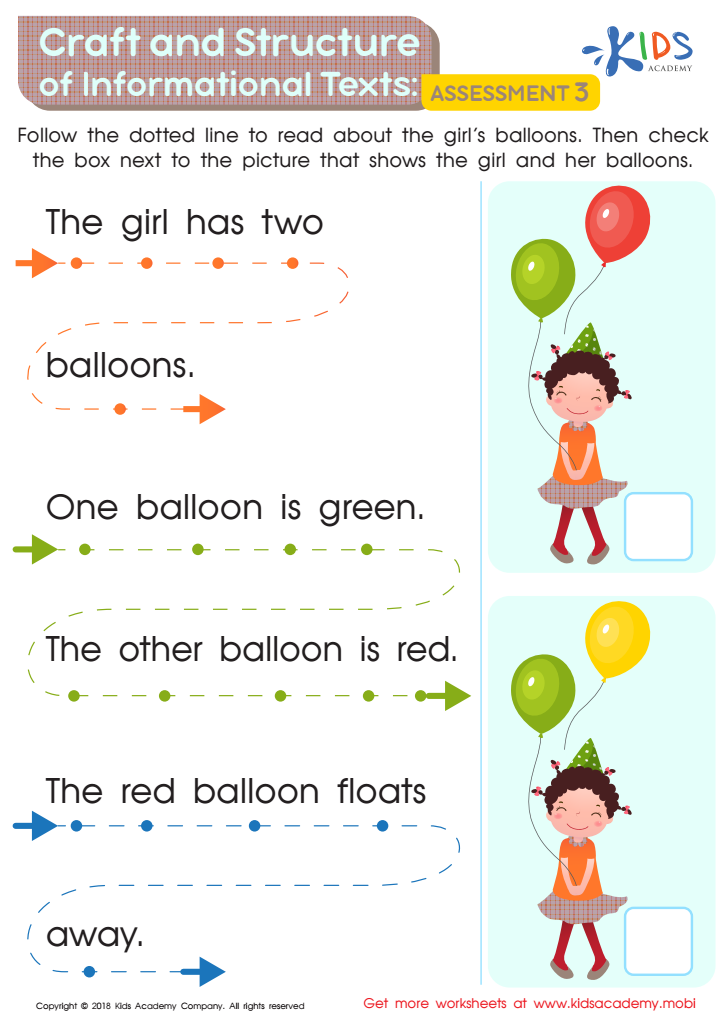

Craft and Structure of Informational Texts: Assessment 3 Worksheet
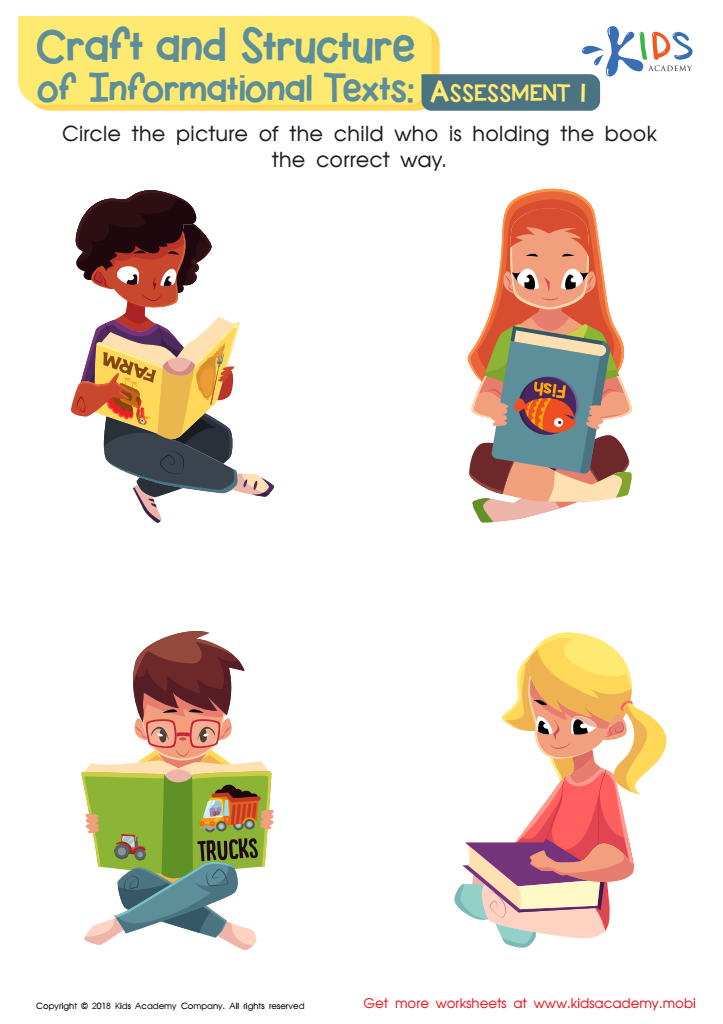

Craft and Structure of Informational Texts: Assessment 1 Worksheet
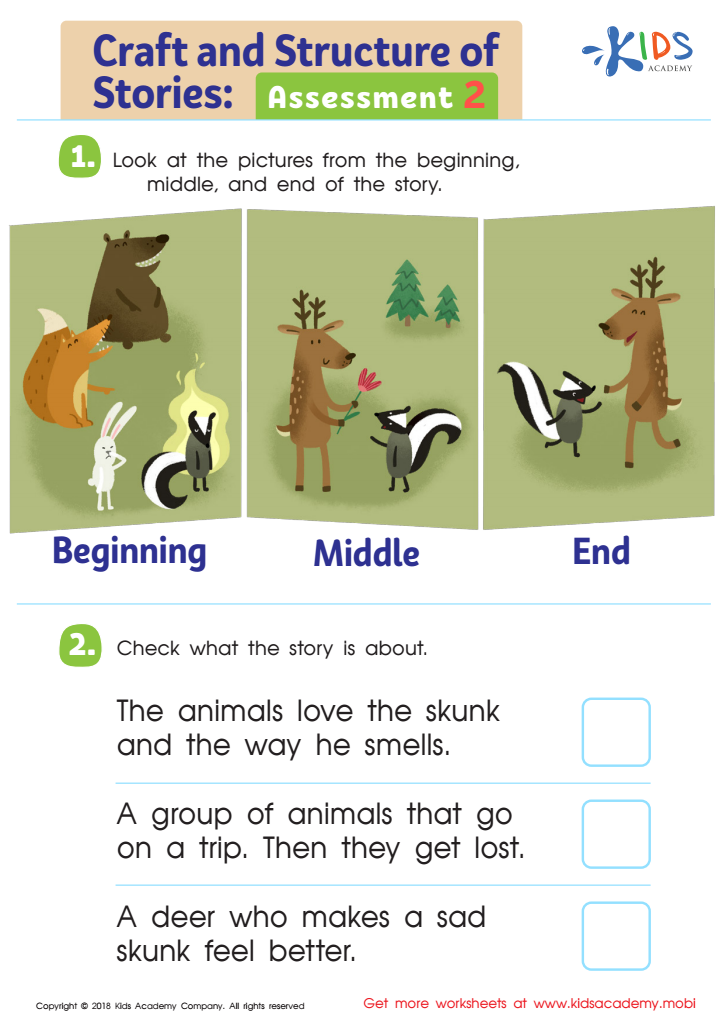

Craft and Structure of Stories: Assessment 2 Worksheet
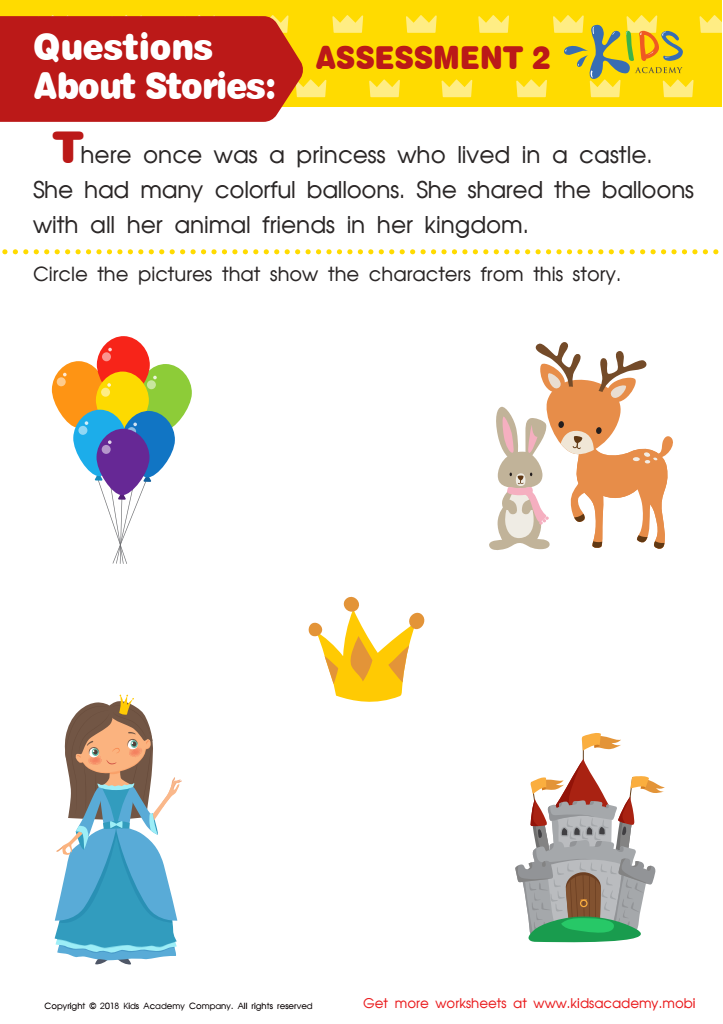

Questions About Stories: Assessment 2 Worksheet
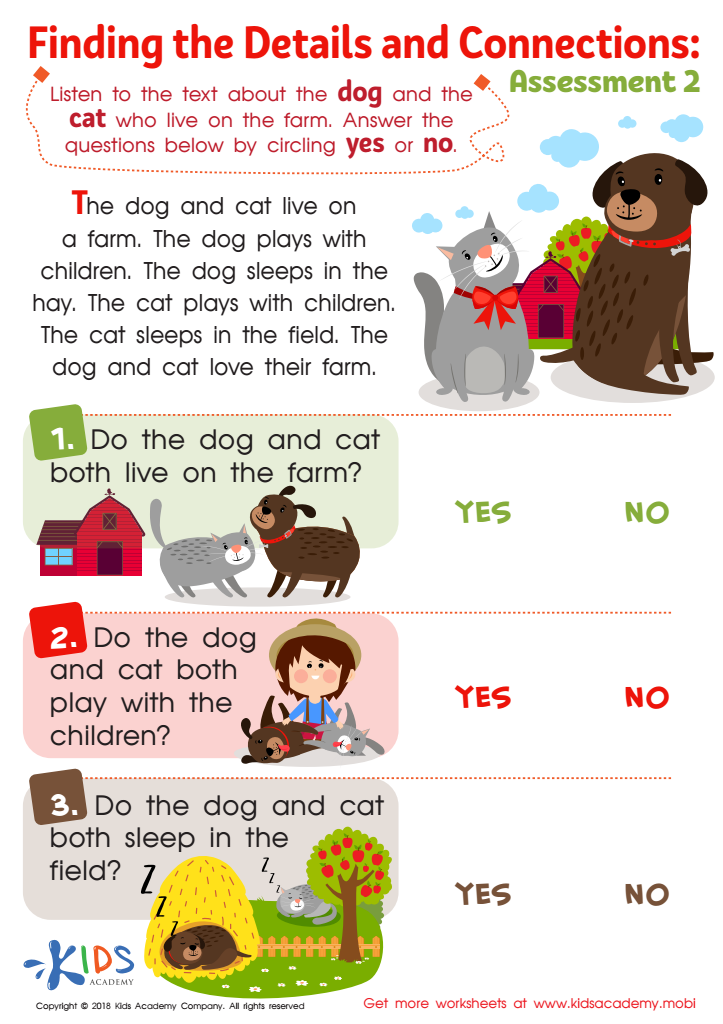

Finding the Details and Connections: Assessment 2 Worksheet
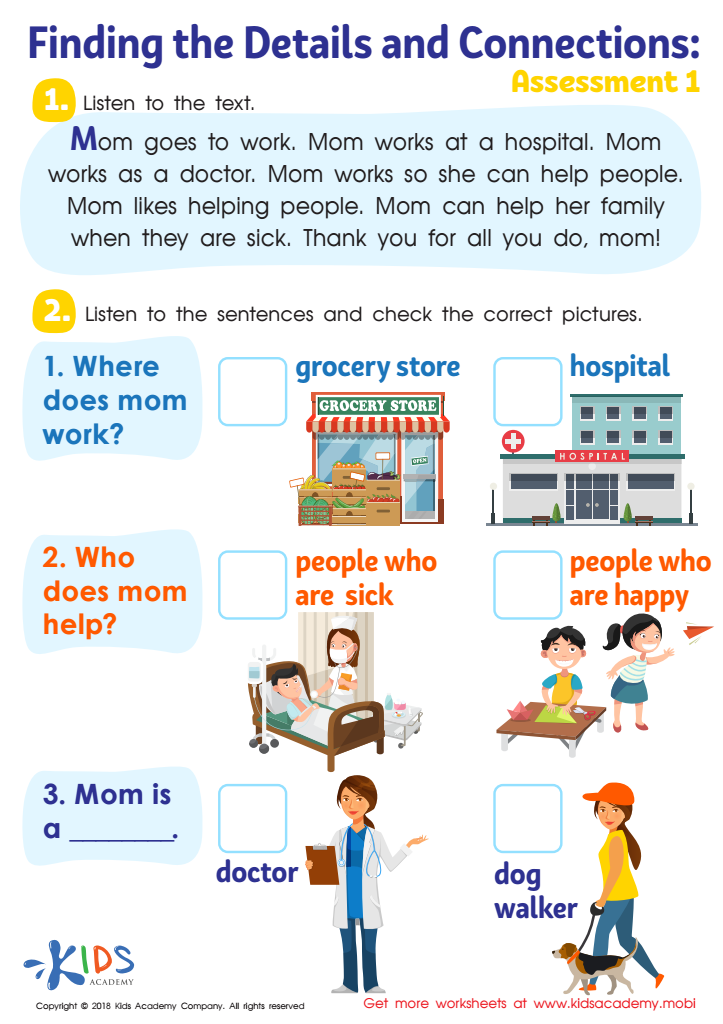

Finding the Details and Connections: Assessment 1 Worksheet
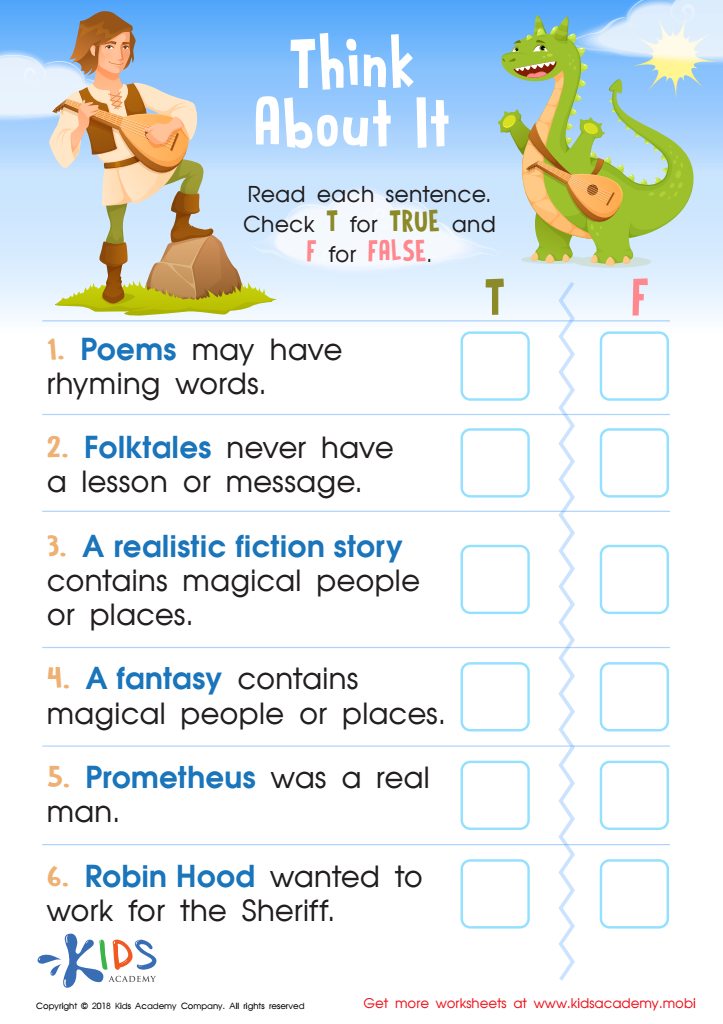

Think About It: Assessment Worksheet
Normal Reading Fiction activities for ages 5-9 are essential for fostering a love of reading and developing critical literacy skills in young learners. At this stage, children are establishing foundational skills, such as phonemic awareness, vocabulary development, and comprehension. Engaging with fiction not only enhances language skills but also encourages imaginative thinking and creativity.
These activities provide opportunities for children to explore different characters, settings, and plots, which helps them understand diverse perspectives and emotions. This, in turn, promotes empathy and social awareness. When parents and teachers encourage reading fiction, they create a supportive environment where children can express their thoughts, ask questions, and make connections to the world around them.
Additionally, fiction encourages interaction and dialogue between children and adults, fostering communication skills. Shared reading experiences can strengthen the bond between parents and children, making reading a pleasurable cooperative activity.
Moreover, early exposure to a variety of storytelling styles and genres can inspire lifelong reading habits, ultimately leading to better academic performance as children progress through school. In essence, investing time in Normal Reading Fiction activities not only nurtures literacy skills but also contributes significantly to overall child development and personal growth.
 Assign to My Students
Assign to My Students







